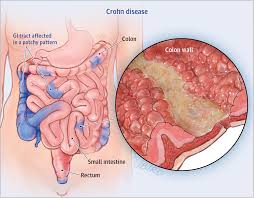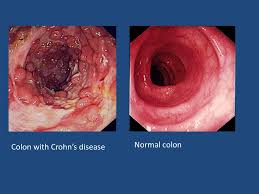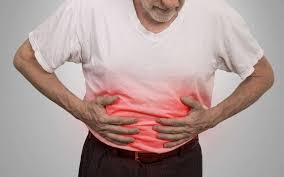Posted by Editor in Health and Wellness | Comments Off on What You Need to Know About Crohn’s Disease
What You Need to Know About Crohn’s Disease
Crohn’s disease was not described until 1932 by Dr. Burrill Crohn, who classified it as one of the inflammatory bowel diseases (IBD) that affect the gastrointestinal tract. The description of Crohn’s disease can be confusing to some, because it overlaps the symptoms with ulcerative colitis, part of irritable bowel syndrome and not IBD, and affects only specific parts of the gut.

What Causes Crohn’s Disease?
Doctors aren’t clear about the cause of this disease. Some agree that it is an autoimmune illness, but it is known as a chronic disease with symptoms that range from mild to severe and can even change over time. Others point to genes, the use of NSAIDs, frequent consumption of high-fat food, and smoking as risk factors for developing Crohn’s disease. Given all these information, it’s not surprising that the treatment of the disease gets complicated, especially if the doctor is not familiar with the disease.
What are the Symptoms?
The severity and range of the symptoms will vary from person to person and could also flare up when certain types of food are consumed. The symptoms might also change depending on which part of the gastrointestinal tract is affected, that is why most patients are asked to gauge the intensity of the symptoms by themselves.

Symptoms may include the following:
1. Recurring diarrhea
2. Constipation (if you’re not having diarrhea)
3. Rectal bleeding
4. Abdominal cramps and pain
5. Changes in appetite
6. Changes in weight
7. Fatigue
8. Anemia
9. Fever, vomiting and/or nausea
10. Eye pain and redness
11. Joint pain
12. Changes in the skin
13. Mouth ulcers
It’s important to be frank about the symptoms you have observed when you’re consulting a specialist in Singapore, because the doctor will determine the best treatment plan based on the symptoms. Fever, weight loss, vomiting, and blockages or infections in the intestine are all signs of moderate to very severe Crohn’s disease that need immediate treatment.

What are the Treatments?
The treatment of Crohn’s disease will depend on the symptoms and the location of the inflammation in your gut. There are six types of Crohn’s disease based on the inflammation, such as; ileocolitis (affects the ilium and colon), ileitis (affects the small intestine), gastroduodenal Crohn’s disease (affects the stomach and duodenum), jejunoileitis (affects the jejunum), Crohn’s or granulomatous colitis (affects the colon), and Perianal Crohn’s (affects the anus).
The doctor will perform the following tests during the check-up: physical exam (check for bloating, pain or tenderness in the abdomen), upper GI series, intestinal endoscopy, CT scan, blood tests (to check for anemia and inflammation), and stool test.
You might be prescribed medications such as corticosteroids, aminosalicylates, immunomodulators, and biologic therapies. Bowel rest, or limiting your food and drink, is also important, but some patients might need surgery to remove obstructions, fistulas, or if the symptoms don’t improve even with medication.

